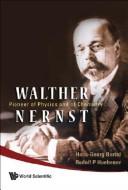| Listing 1 - 10 of 14 | << page >> |
Sort by
|
Digital
Year: 1872 Publisher: Rome Imprimerie des sciences mathématiques et physiques
Abstract | Keywords | Export | Availability | Bookmark
 Loading...
Loading...Choose an application
- Reference Manager
- EndNote
- RefWorks (Direct export to RefWorks)
Book
Year: 1972 Publisher: Amsterdam Elsevier
Abstract | Keywords | Export | Availability | Bookmark
 Loading...
Loading...Choose an application
- Reference Manager
- EndNote
- RefWorks (Direct export to RefWorks)
Book
Year: 1857 Publisher: Paris Masson
Abstract | Keywords | Export | Availability | Bookmark
 Loading...
Loading...Choose an application
- Reference Manager
- EndNote
- RefWorks (Direct export to RefWorks)
Physicists --- Chemist --- Physicians
Book
ISBN: 1139833618 1108061591 Year: 2013 Publisher: Cambridge : Cambridge University Press,
Abstract | Keywords | Export | Availability | Bookmark
 Loading...
Loading...Choose an application
- Reference Manager
- EndNote
- RefWorks (Direct export to RefWorks)
In 1870, Sir William Crookes (1832-1919) travelled to Gibraltar to observe the solar eclipse. He kept a diary and produced beautiful accounts of the expedition - alongside altogether more specific observations, including the 656 steps down a local cliff face, and every item in his luggage. It is with the same meticulous approach and cheerful prose that he records, in letters, journal articles and reports, the successes and failures of the vast range of projects in which he was involved. Although initially trained as a chemist, Crookes worked across the spectrum of the sciences, from consulting on preventative measures against cattle plague through to investigating spiritualism. Opening with a foreword by the physicist Sir Oliver Lodge, this biography by Edmund Edward Fournier d'Albe (1868-1933), first published in 1923, explores a remarkable life of enquiry through a host of first-hand sources.
Spiritualists --- Crookes, William, --- Occultists --- Chemist
Digital
Year: 1731 Publisher: London Printed for the author
Abstract | Keywords | Export | Availability | Bookmark
 Loading...
Loading...Choose an application
- Reference Manager
- EndNote
- RefWorks (Direct export to RefWorks)
Digital
Year: 1731 Publisher: London Printed and sold by T. Payne
Abstract | Keywords | Export | Availability | Bookmark
 Loading...
Loading...Choose an application
- Reference Manager
- EndNote
- RefWorks (Direct export to RefWorks)

ISBN: 9812565604 9789812565600 Year: 2007 Publisher: Hackensack, N.J. World Scientific
Abstract | Keywords | Export | Availability | Bookmark
 Loading...
Loading...Choose an application
- Reference Manager
- EndNote
- RefWorks (Direct export to RefWorks)
Physics --- History of chemistry --- Physicists --- Chemist --- Nernst, Walter --- Germany
Book
ISBN: 0115153020 Year: 1992 Publisher: London : HMSO,
Abstract | Keywords | Export | Availability | Bookmark
 Loading...
Loading...Choose an application
- Reference Manager
- EndNote
- RefWorks (Direct export to RefWorks)
Chemistry, Analytic --- Chemistry, Analytic --- History --- History --- Laboratory of the Government Chemist (Great Britain).
Book
ISBN: 902906871X 9789029068710 Year: 2001 Publisher: Amsterdam Meulenhoff
Abstract | Keywords | Export | Availability | Bookmark
 Loading...
Loading...Choose an application
- Reference Manager
- EndNote
- RefWorks (Direct export to RefWorks)
Chemie --- Oliver Sacks --- 929 --- Chemist --- chemicaliën --- 54 --- chemie. scheikunde --- 929 <01> --- 929 <01> Biografie. Genealogie. Heraldiek--Bibliografieën. Catalogi --- Biografie. Genealogie. Heraldiek--Bibliografieën. Catalogi --- 960 --- scheikunde --- wetenschappers --- levensbeschrijvingen --- biographies et mémoires
Book
ISBN: 022636884X 9780226368849 9780226351360 022635136X Year: 2016 Publisher: Chicago London
Abstract | Keywords | Export | Availability | Bookmark
 Loading...
Loading...Choose an application
- Reference Manager
- EndNote
- RefWorks (Direct export to RefWorks)
What did it mean to be a scientist before the profession itself existed? Jan Golinski finds an answer in the remarkable career of Humphry Davy, the foremost chemist of his day and one of the most distinguished British men of science of the nineteenth century. Originally a country boy from a modest background, Davy was propelled by his scientific accomplishments to a knighthood and the presidency of the Royal Society. An enigmatic figure to his contemporaries, Davy has continued to elude the efforts of biographers to classify him: poet, friend to Coleridge and Wordsworth, author of travel narratives and a book on fishing, chemist and inventor of the miners' safety lamp. What are we to make of such a man? In The Experimental Self, Golinski argues that Davy's life is best understood as a prolonged process of self-experimentation. He follows Davy from his youthful enthusiasm for physiological experiment through his self-fashioning as a man of science in a period when the path to a scientific career was not as well-trodden as it is today. What emerges is a portrait of Davy as a creative fashioner of his own identity through a lifelong series of experiments in selfhood.
Chemists --- Scientists --- Davy, Humphry, --- humphry davy, baronet, cornish, chemist, chemistry, science, invention, inventor, scientist, lamp, electricity, electrochemistry, physical, electrical potential, chemical change, history, humanities, historical, 19th century, royal society, self experimentation, identity, selfhood, england, english, biography, education, scientific interests, herculaneum papyri, president, understanding, presentation.
| Listing 1 - 10 of 14 | << page >> |
Sort by
|

 Search
Search Feedback
Feedback About UniCat
About UniCat  Help
Help News
News